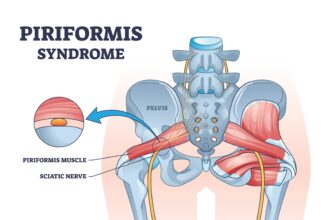In the ever-evolving landscape of healthcare services, the need for efficient, accessible, and secure software solutions has never been greater. One technology that has emerged as a game-changer in this domain is Platform as a Service (PaaS). In this article, we will explore how PaaS tools are reshaping healthcare software development and making it more efficient, cost-effective, and secure.
What is PaaS?
Platform as a Service, or PaaS, is a cloud computing model that provides a ready-made platform for developing, testing, and deploying software applications. Unlike other cloud service models, such as Infrastructure as a Service (IaaS) or Software as a Service (SaaS), PaaS offers developers a complete environment to build and run their applications.
Benefits of PaaS in Healthcare
Cost-Efficiency: PaaS eliminates the need for organizations to invest in and maintain costly infrastructure. This cost-saving benefit is especially crucial in healthcare, where resources are often limited. With the financial burden of hardware and software maintenance lifted, healthcare providers can allocate more resources to patient care and research.
Scalability: PaaS solutions allow healthcare software to scale effortlessly, accommodating growing demands and user bases without significant overhead. This scalability is a game-changer in healthcare, where patient volumes can fluctuate dramatically. Healthcare organizations can expand or contract their software resources as needed, ensuring that patients always receive the care they require.
Flexibility: The flexibility of PaaS enables healthcare organizations to adapt quickly to changing regulatory requirements and patient needs. Healthcare regulations evolve regularly, and PaaS platforms can be updated to comply with these changes rapidly. This agility ensures that healthcare providers can focus on patient care rather than grappling with compliance issues.
Accessibility and Collaboration
PaaS tools enhance accessibility and collaboration in healthcare software development in the following ways:
Accessibility: With PaaS, healthcare professionals can access and work on software applications from anywhere with an internet connection. This accessibility is vital for telemedicine and remote patient monitoring. Patients can access their health records and communicate with their healthcare providers conveniently, regardless of their location.
Collaboration: PaaS fosters collaboration among healthcare professionals, allowing real-time sharing of information and collaboration on patient care plans. This leads to improved patient outcomes. For example, a team of doctors can collectively review and update a patient’s treatment plan, ensuring that the care provided is comprehensive and up to date. This collaboration results in a more holistic approach to healthcare.
Security and Compliance
Security and compliance are paramount in healthcare. PaaS platforms address these concerns effectively:
Data Encryption: PaaS providers offer robust data encryption measures to safeguard patient data, ensuring it remains confidential and compliant with healthcare regulations. Encryption ensures that even if data is intercepted, it cannot be read without the appropriate decryption key. This level of security is crucial in protecting sensitive patient information.
Regulatory Compliance Features: PaaS platforms often come with built-in compliance features that help healthcare organizations adhere to HIPAA (Health Insurance Portability and Accountability Act) and other regulatory requirements. These features include audit trails, access controls, and automated compliance reporting.
Rapid Development
PaaS accelerates software development in the healthcare sector in several ways:
Quick Deployment: PaaS tools enable rapid deployment of software applications, reducing the time it takes to bring new solutions to the healthcare market. For example, a new telemedicine platform can be developed and deployed in a matter of weeks, allowing healthcare providers to offer remote consultations to patients quickly.
Efficient Updates: Healthcare providers can seamlessly update their software to address emerging needs, ensuring they stay on the cutting edge of patient care. These updates can include bug fixes, new features, or changes to comply with evolving healthcare regulations. With PaaS, updates can be rolled out without disrupting the healthcare services provided to patients.
Integration with Healthcare Systems
The seamless integration of PaaS solutions with existing healthcare systems is crucial:
Interoperability: PaaS tools are designed to work seamlessly with other systems and devices, ensuring interoperability and smooth data exchange. This is vital for creating a holistic view of patient health. For example, a PaaS-powered EHR system can seamlessly exchange patient data with diagnostic devices, ensuring that all relevant information is available to healthcare providers when making treatment decisions.
Use Cases in Healthcare
Let’s explore real-world examples of PaaS tools being used for healthcare software development:
Electronic Health Records (EHR): PaaS platforms enable healthcare organizations to create and manage EHR systems efficiently, improving patient data accessibility and accuracy. Healthcare providers can access patient records from different locations, ensuring that they have the latest information at their fingertips.
Telemedicine: Telemedicine solutions built on PaaS enable remote consultations, enhancing patient access to healthcare services. Patients can schedule virtual appointments with their healthcare providers and receive medical advice without the need for physical visits. This not only improves access to care but also reduces the burden on healthcare facilities.
Patient Portals: PaaS-powered patient portals allow individuals to access their health records, schedule appointments, and communicate with healthcare providers securely. Patients can log in to a secure portal to view their test results, request prescription refills, and send messages to their healthcare team.
Challenges and Solutions
While PaaS offers numerous benefits, there are some challenges in implementing it for healthcare software development:
Data Security Concerns: The sensitive nature of healthcare data makes security a top concern. To address this, healthcare organizations should choose PaaS providers with a strong security track record and robust encryption features.
Compliance Hurdles: Staying compliant with regulations like HIPAA can be complex. To overcome this, healthcare organizations should opt for PaaS solutions that offer built-in compliance features and regularly update them to meet evolving requirements. Ongoing staff training and education on compliance best practices are also essential to ensure that all employees understand their roles in maintaining compliance.
Conclusion
In conclusion, Platform as a Service (PaaS) tools are transforming healthcare software development by offering cost-efficiency, scalability, flexibility, accessibility, and robust security and compliance features. Through real-world use cases and successful implementations like XYZ Healthcare System, it’s clear that PaaS is a valuable asset in the pursuit of improved patient care.










